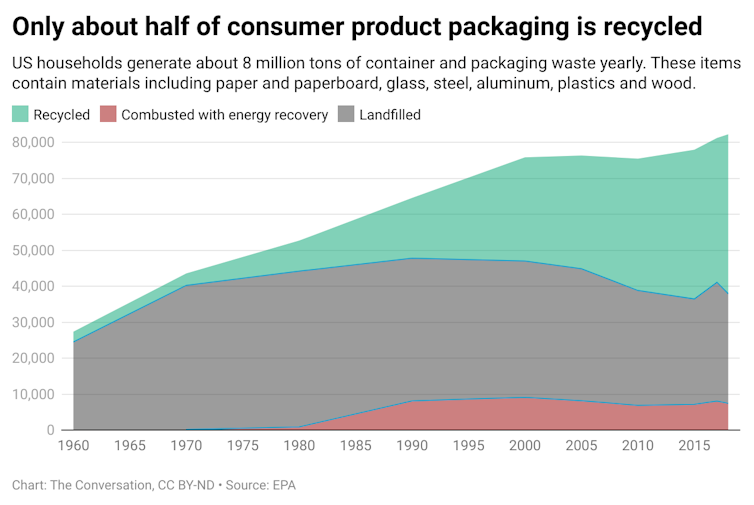|
|
|
|
In recent weeks, the idea that vaccinations are leading to more dangerous strains of the coronavirus has gotten some attention. And to be fair, one could imagine that a virus will try to evolve in a way that avoids a vaccine meant to stop it.
But this interpretation is incorrect. As Vaughn Cooper and Lee Harrison, an evolutionary biologist and an infectious disease epidemiologist at the University of Pittsburgh, explain: “Most viruses in an infected person are genetically identical to the strain that started the infection. It is much more likely that one of these copies – not a rare mutation – gets passed on to someone else.”
The more infections there are, though, the more chances a person will pass a random mutation to someone else. So it is the huge number of new infections that is leading to new variants, not vaccines. In fact, the authors explain that vaccines are the best tool available to prevent dangerous new strains of the coronavirus from emerging in the first place.
Also today:
|

|
Daniel Merino
Assistant Science Editor & Co-Host of The Conversation Weekly Podcast
|
|

The huge number of active coronavirus infections offers plenty of opportunity for mutations to occur and new variants to arise.
Eoneren/E+ via Getty Images
Vaughn Cooper, University of Pittsburgh; Lee Harrison, University of Pittsburgh
When the coronavirus copies itself, there is a chance its RNA will mutate. But new variants must jump from one host to another, and the more infections there are, the better chance this will happen.
|
Economy + Business
|
-
Hanif Sufizada, University of Nebraska Omaha
The Taliban have at least five significant potential sources of revenue as they begin to govern Afghanistan again.
-
Cristina Poleacovschi, Iowa State University; Amy N. Javernick-Will, University of Colorado Boulder; Sheng Wang, University of Nevada, Las Vegas; Tony W. Tong, University of Colorado Boulder
In the male-dominated engineering industry, where women represent only about 11% of the workforce, gender influences whom individuals turn to for answers to questions.
-
Cassandra M. Johnson, Texas State University
A scholar of nutrition opens up with a personal take on food insecurity in America.
|
|
Ethics + Religion
|
-
Matt Williams, The Conversation
The Attica uprising marked a milestone in the prisoners’ rights movement. Many of the grievances aired in 1971 are still relevant to today’s incarcerated population.
-
Saif Shahin, American University
Concern about Islamophobia has been near-constant for years. But how it plays out is changing – especially online.
|
|
Health
|
-
Craig Gundersen, Baylor University
While the food insecurity rate held steady in 2020, the racial hunger gap increased.
|
|
Education
|
-
Brenna Hassinger-Das, Pace University ; Jennifer M. Zosh, Penn State; Kathy Hirsh-Pasek, Temple University
Scientists and local communities can work together to design interactive play spaces that build math and literacy skills.
|
|
Podcast 🎙️
|
-
Gemma Ware, The Conversation; Daniel Merino, The Conversation
Plus, new research chronicling the experiences of Japanese Americans interned by the US government during the second world war. Listen to The Conversation Weekly podcast.
|
|
Trending on site
|
-
Andrew Maynard, Arizona State University
If you see the Tesla Bot as a joke or a harbinger of a dystopian future, you could be missing the real threat, which has more to do with Elon Musk’s power than robots run amok.
-
Janet Bednarek, University of Dayton
Since 9/11, billions have been spent beefing up airport security. Was it worth it?
-
Paul Shafer, Boston University; Alex Hoagland, Boston University
The Affordable Care Act has allowed many preventive health services, including cancer screenings and vaccines, to be free of charge. But legal challenges may lead to costly repercussions for patients.
Today’s graphic

|
|
| |
| |
| |
| |

|
| |
| |
| |
| |
| |
| |
| |
| |
|
|
|
|
|
|
|